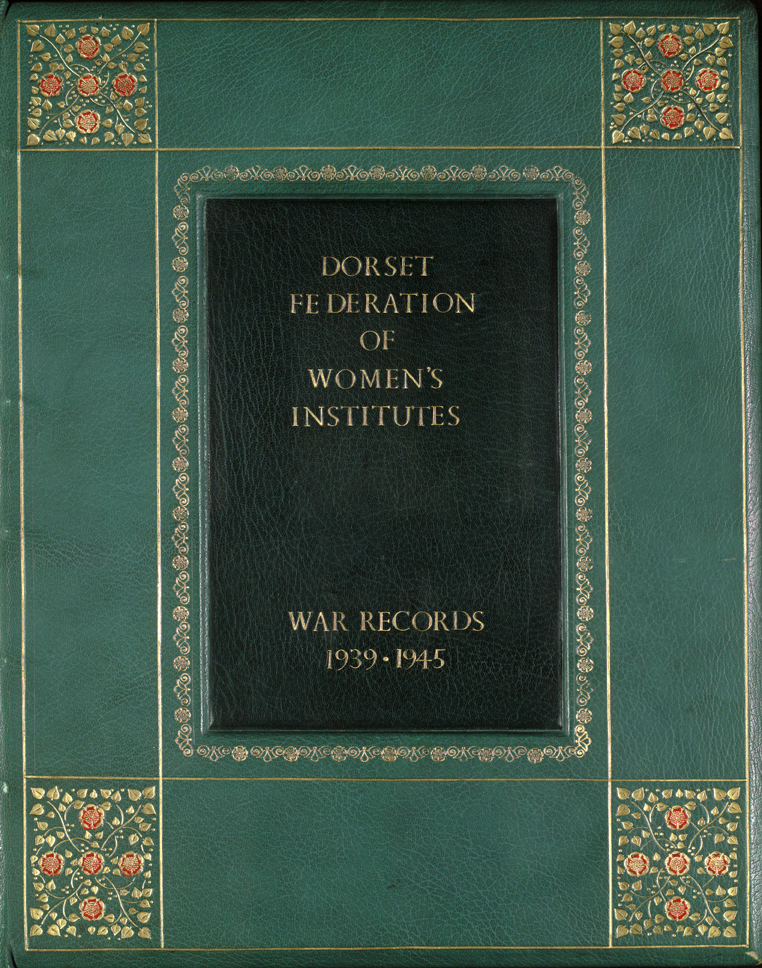For three weeks in July 2021 Dorset History Centre has hosted three students undertaking work experience. For obvious reasons, this year has been very different to previous years, with the students having to work remotely for large parts of their time, with the occasional day in the building learning about collections.
The students have written us a blog each on something they were involved with, as well as their perspectives on work experience in the age of Covid! This first blog is from Izzie Molland…
—
The WI War Record book is a unique document which catalogues the varied experiences of Women’s Institute members in the aftermath of World War Two. The war record contains contributions from 80+ towns and villages in Dorset and is telling of the impactful nature of such a war on those left behind. This war record reflects on both the highs and lows of such a catastrophic event on the rural communities of the United Kingdom.

The Women’s institute was formed in 1915 in order to ‘revitalise rural communities and encourage women to become more involved in producing food during the First World War’. However, since then its role as well as its membership has broadened and evolved. Importantly during the Second World War the WI played a vital role in food production as well as the evacuation scheme.

Interestingly though the WI war record is concerned with food production and evacuation its content also discusses craft activities such as knitting and mending, rationing, bombing and aftermath/losses. The level of uncertainly these women fought daily and drive they possessed to keep going while their loved ones were abroad is a story not often so well preserved or told in such detail.

Our contribution as work experience students was to prepare the information presented within the war record for the use of schools and teachers as learning materials. We therefore sought to gather quotations from the village/town’s submissions, allocate them to a topic and find both documentation and images within the archive that supplemented these quotes.

My own experience of placement at the Dorset History Centre during the pandemic has certainly been educational and insightful. Not only has my appreciation grown for the value of archives, curation and documentation but I’ve been exposed to so many individuals passionate about their role during a period of such difficulty. These past three weeks have taken form as a blended work experience which meant our time was spent both online and in person. Though this of course comes with its own challenges I enjoyed the flexibility of this approach which allowed for a greater level of emersion in the task at hand.

